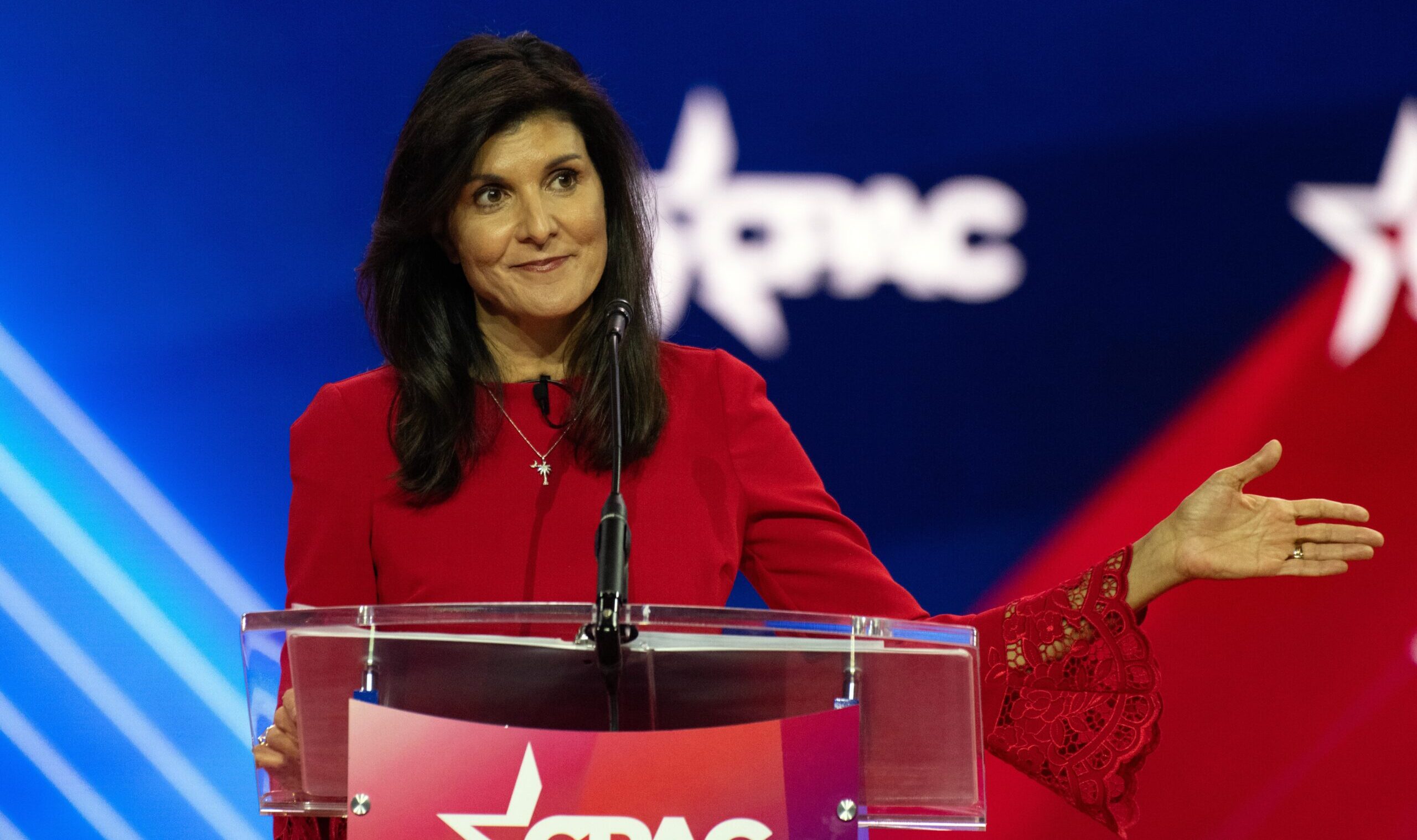Nikki Haley Wants Her Voters to Pretend Trump Never Happened
The South Carolinian holds out the promise of returning to the GOP of 2012—and it will probably die with her campaign.

A lot has happened in the nearly eight years since Donald Trump took the magic escalator ride that upended American politics. Yet for all the weeping and gnashing of teeth, the main electoral shift has been Republicans trading some of their college-educated, suburban white voters for additional working-class voters.
The good news for Republicans was that this broke the Democrats’ lock on the Electoral College as Pennsylvania, Michigan, and Wisconsin became genuine battleground states and Ohio—a state that voted twice for Barack Obama and was the centerpiece of Robert F. Kennedy Jr.’s elaborate theory that George W. Bush stole the 2004 election—a GOP stronghold.
Many smart people predicted the Republicans’ share of the Hispanic vote would be decimated following the 2016 election, much as happened to their share of the black vote after Barry Goldwater carried just six states in 1964. Instead, nontrivial numbers of Hispanic, Asian American, and black voters—especially the men among them—began to drift back toward the party of Lincoln, however modestly.
A multiracial working-class party of the center-right isn’t a sure thing. But it is a plausible scenario as Republicans stand poised to nominate Trump for president for the third straight election cycle.
Nevertheless, many Republicans still think this shift in their coalition was a losing bet. The main reason for this is Trump. Just as the former president radicalized progressives who styled themselves the Resistance, many lifelong conservatives and Republicans became profoundly alienated from their party and movement in response to its elevation of a man they regarded as profoundly unfit to serve and a new nationalist politics they disdained.
One way or another, the near 78-year-old Trump will pass from the scene. But much of the party’s media voices, Senate leadership, and consultant and media classes fear the damage to the Republican platform and brand will endure. With a few exceptions, like the off-year elections in Virginia and New Jersey in 2021, Republicans have either lost or underperformed in non-presidential election years, as they have become more reliant on low-propensity voters.
The columnist David Harsanyi summed up the buyer’s remorse well: “A populist party that abandons college educated voters (really, suburban voters) so it can appeal to a shrinking demographic with watered-down leftist economic ideas and hairbrained conspiracy theories is going to lose many elections.”
Nikki Haley is the buyer’s remorse candidate in the 2024 Republican primaries. She promises that it is possible for the party to get back to the way things were before Trump took over and his hoodlum friends stormed the GOP, insurrection-style. Or she can at least clean up with orange finger stains and keep that guy in the horned helmet from putting his feet up on the desk.
On Tuesday, Haley reiterated her plans to stay in the race no matter what happens in her home state of South Carolina, where she appears headed to an overwhelming defeat. The poll numbers look worse in Michigan and most Super Tuesday states, with only semi-open blue-state primaries providing much of an opportunity to register a significant anti-Trump protest.
It’s not difficult to imagine Haley beating President Joe Biden in a general election framed as a relatively young woman of color who is a change agent versus an old white man who was first elected to the Senate the same year Haley was born. Neither is it particularly challenging to envision her disappointing Republicans against a vulnerable incumbent just as Mitt Romney did.
What is nearly impossible to picture is a realistic path for Haley to win the nomination.
Republicans didn’t really make a deliberate choice to trade away their suburbanites for additional working-class support. This began happening organically under Bill Clinton. West Virginia began its path toward becoming a red state, and Virginia a blue state, under George W. Bush.
Subscribe Today
Get daily emails in your inbox
“Yet even as college graduates have surged in numbers and grown increasingly liberal, Democrats are no stronger than they were 10, 30 or even 50 years ago,” Nate Cohn observed in the New York Times. “Instead, rising Democratic strength among college graduates and voters of color has been counteracted by a nearly equal and opposite reaction among white voters without a degree.”
That’s one of the reasons Republicans don’t want to go backwards now. If your benchmark is Bush’s reelection in 2004 against Trump’s loss in 2020, this may seem irrational. If it is comparing the party’s standing after eight years of Trump to where it was after eight years of Bush, it appears rather less so.
Either way, Haley is at the moment hunting where the ducks aren’t. Whether Republicans regret their trade-offs come November remains to be seen.